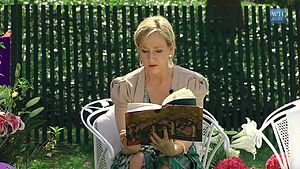Is Pottermore Fiction’s Neverland?
So I’ll get it out in the open right from the get-go. I’m not a big Harry Potter fan. I’ve read bits and pieces, caught a film on the airplane, but for one reason or another I never caught the bug.
Frank Rose’s post on Deep Media caught my attention. “From PotterWar to Pottermore: The Extraordinary Evolution of Harry’s World” takes a look at J.K Rowling’s cyber quest. From ink and paper to a digital, virtual world, Pottermore promises Harry Potter fans a wormhole into the fantasy land they crave. But fans will do more than simply populate the bleachers of Pottermore; they’ll actively — interactively — participate in the narrative.
a challenge to existing business models… is minor compared to a wholesale rethinking of the art of fiction. And… that’s what Rowling promised—an acknowledgment that the Internet makes possible an entirely new form of narrative, one that readers can not only consume but explore and build upon…
“It’s the same story, with a few crucial additions,” she [J.K. Rowling] says of Pottermore in an introductory video on the site. “The most important one is you. Just as the experience of reading requires that the imaginations of the author and the reader work together to create the story, so Pottermore will be built in part by you, the reader.” (Deap Media)
You with me? Interactive, transmedia Harry Potter. The next frontier… Maybe it’s time for me to take a look!
Related articles
- Magic Indeed: J.K. Rowling Rethinks the Art of Fiction(wired.com)
- Pottermore Promises More Potter, Cowbell (geeksaresexy.net)





